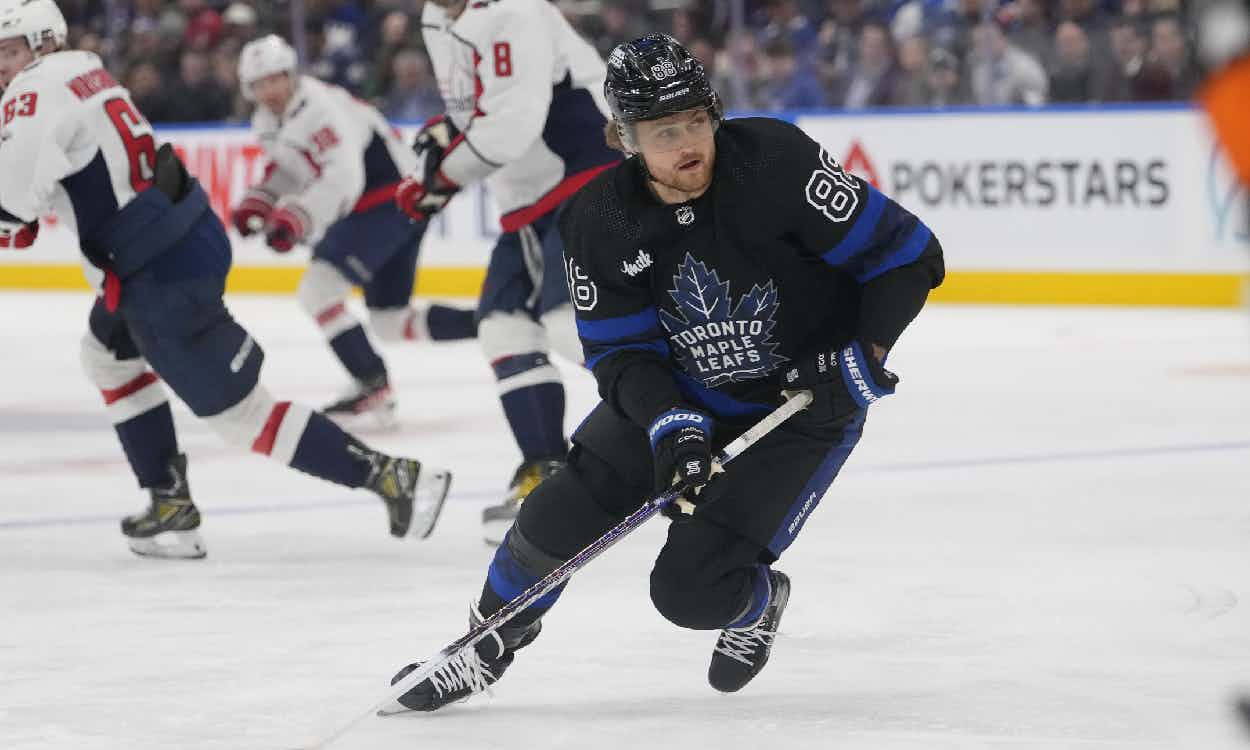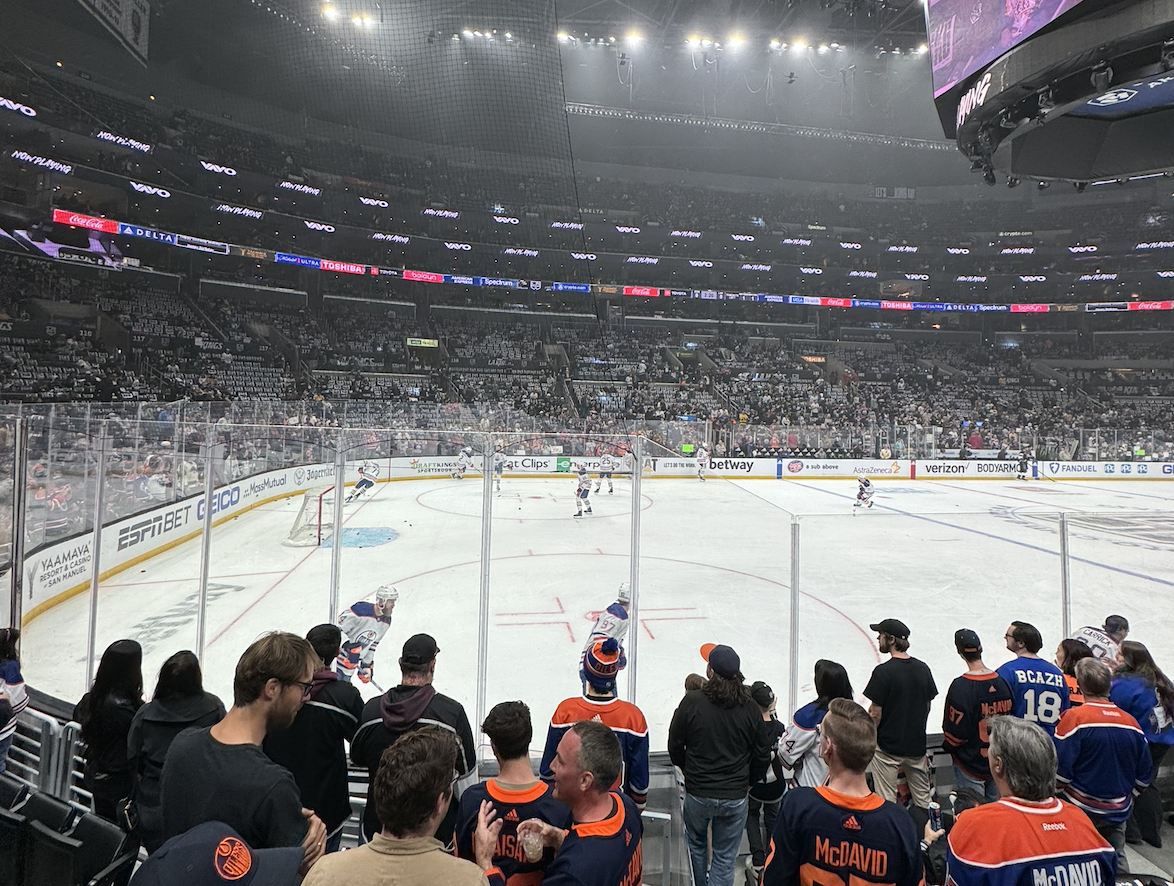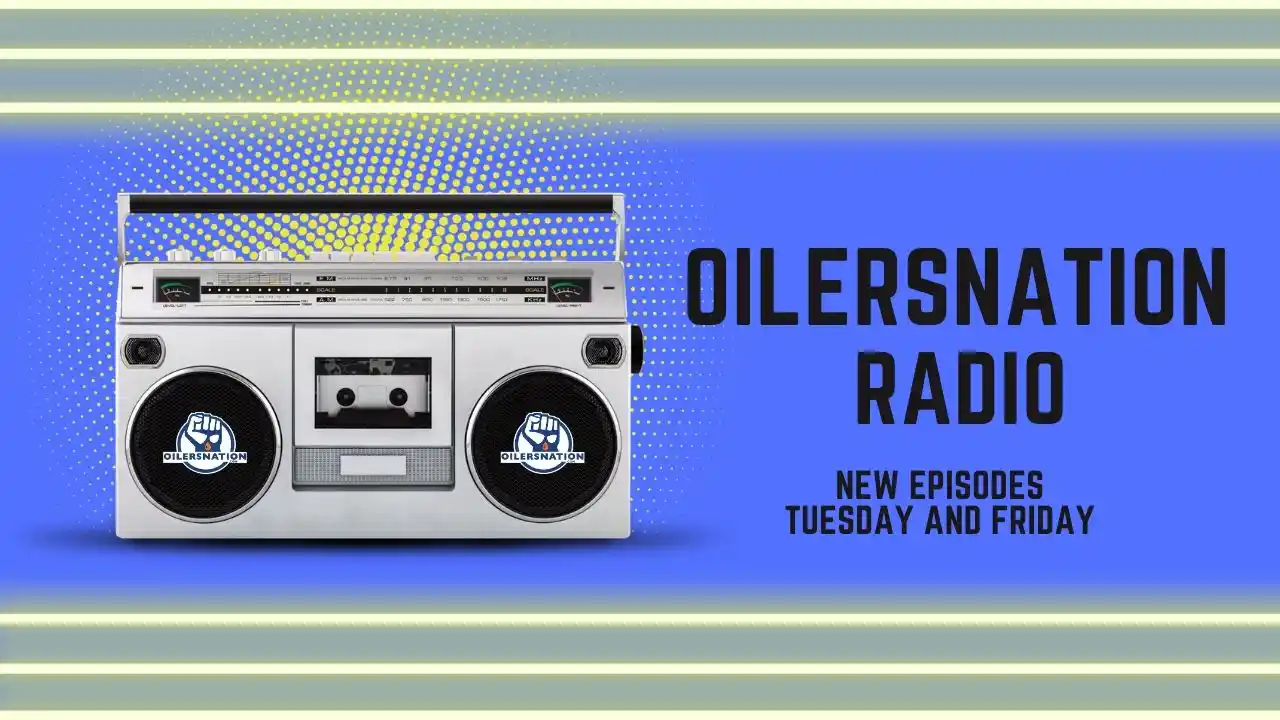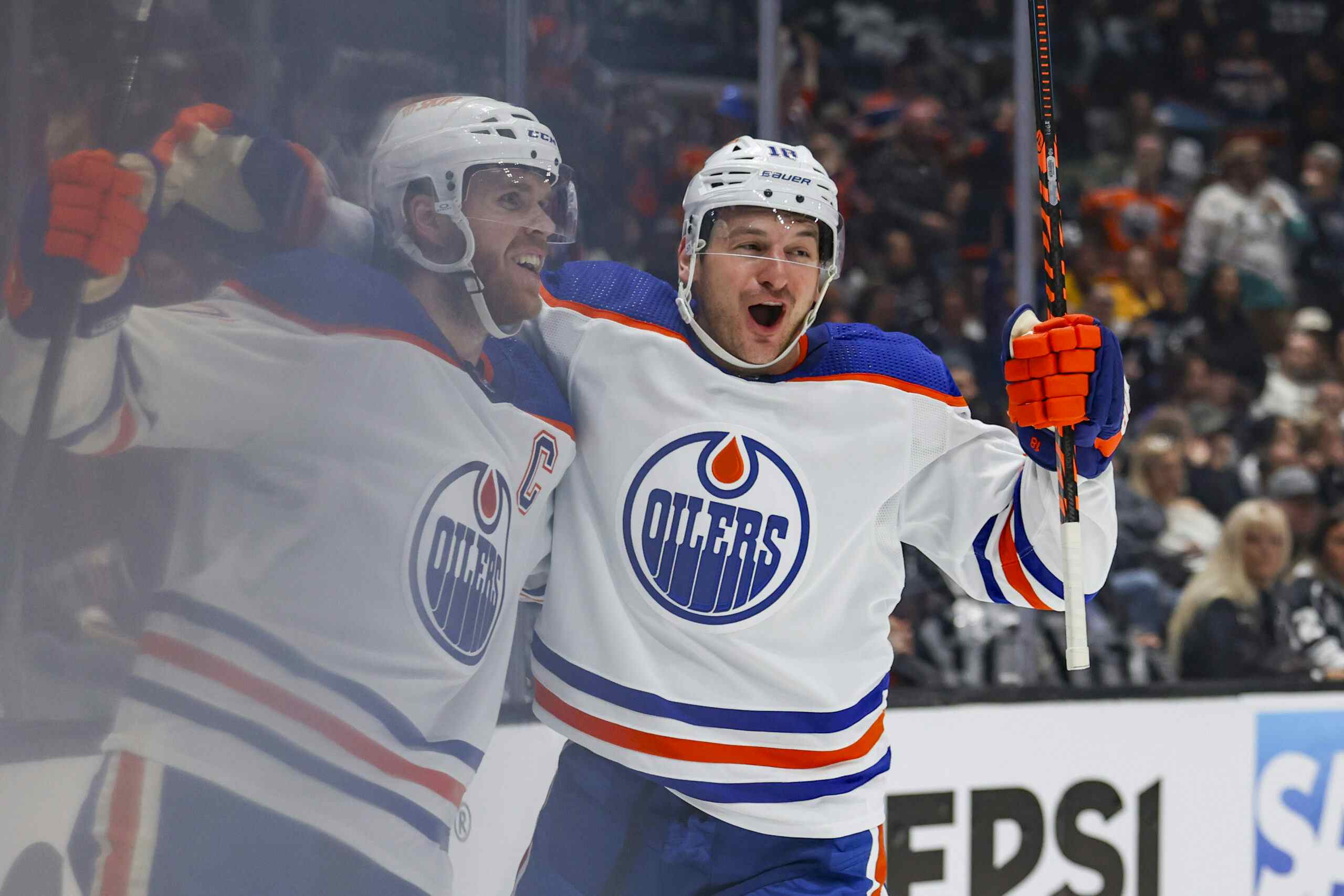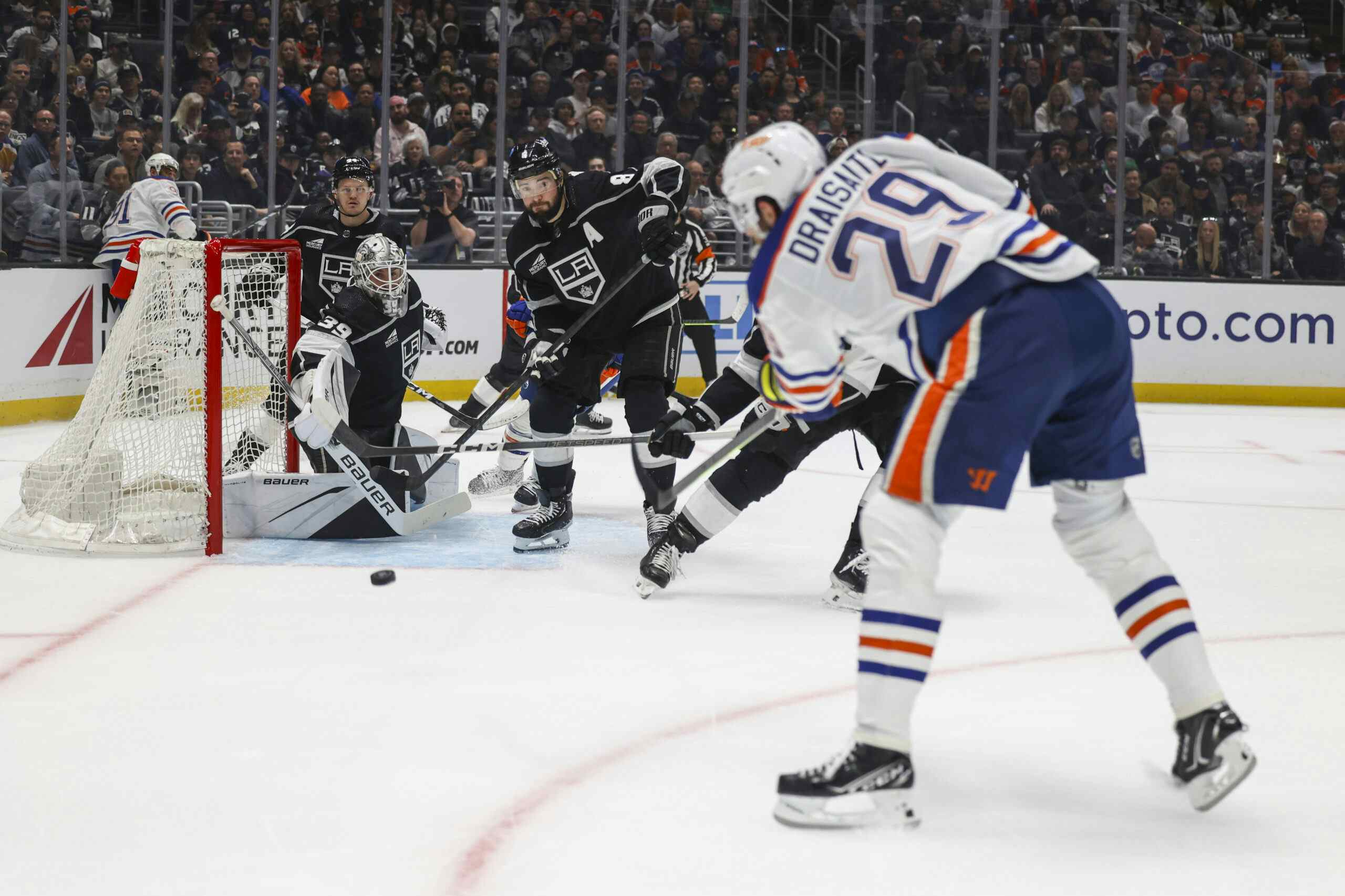CHRIS NILAN TALKS OPENLY ABOUT HIS STRUGGLES
By Jason Gregor
11 years agoThe Last Gladiators is a documentary about hockey, but it focuses mainly on former NHLer Chris Nilan. The film is honest, funny, realistic and heartbreaking. Nilan talks openly about his career, his drug and alcohol addiction as well as his upbringing with an abusive father. It is currently playing in Edmonton at Movies 12 at 5074 137 avenue.
There was an advance screening in Edmonton a few weeks back and after the movie I spoke with Nilan. After a Q and A with the audience he agreed to do an interview about the movie. He was just as candid in the interview as he was in the movie. I didn’t omit any of his responses and the following interview is just a small sample of what you’ll see in theatres.
JG: You’ve had the opportunity to see the movie at a few advanced screenings but now it has gone National. What’s kind of feedback have you received from people?
CN: You know, I’m surprised, actually. I didn’t know what kind of reviews it was going to get and how people were going to take to it. I just didn’t know because I’ve never been involved in anything like this. I’ll be honest with you, out west it was received really well. And when I got back here to Montreal, obviously, where I played and a lot of people identify with Chris Nilan, the response was incredible. A lot of guys from the current team Gionta, Prust, Cole, Josh Gorges came and supported the film. Mr. Molson, Marc Bergevin, Serge Savard, Rejean Houle, Lambert, guys I played with; and it was really, really awesome that they showed up.
But then going to Toronto and saying, Okay, what’s going to happen here? And the theater was packed. It was quite a response from the people there that surprised me I guess, not having played in Toronto, but it was incredible. Same with Ottawa, the people, the feedback I’m getting is they love the movie. Obviously they thanked me for my honesty and being up front and everything. But it’s the way they put the film together, the way they pieced it together. They didn’t take a stance, I’m so the glad they didn’t get political and politicize this thing and try and make the NHL look bad because of the fight game back in the ’80s, the way it was. I think they handled it well.
JG: It was very candid about your relationship with your teammates, certain coaches, whether you liked them or not, and then of course with your own family. What did your family think about it, because you really opened up your life and your family’s life to everybody?
CN: My mom and dad have seen it. My other siblings haven’t yet. My children have seen it as well, two of my children, and they like the film. My dad actually expressed to me that, ‘Geez, I wish I knew what the questions were before they asked them.’ But I said it’s not the way it works. They ask you on camera and they want your answer right as they ask you. They don’t want to give you time to think about what to say because then you can candy coat it if you want. So I’m glad we got his emotions. I’m glad we got his raw emotions, which is what I think the filmmaker wanted.
Two, it was good for me to see it because although it was tough to watch, I mean those are my father’s emotions and the way he felt, and that has to be known. Alcoholism and drug addiction does not just affect the person involved. It affects everybody around him that loves him and cares about him, like my family. It’s a family disease, and I think they did a good job in putting that out there.
Listen, I didn’t mind people seeing me all messed up or drinking in a bar or screwed up like I was, so why should I worry about people knowing that and me explaining it to them and then letting people know that I’m healthy again? I’m back on track, and I got back to my feet after I was knocked down, and I mean I was knocked down really low.
JG: A lot of people battle with addictions or have family members who battle with it. You talked openly about how you tried a lot of different drugs over the years. How did you finally turn it around? What was the breaking point for you?
CN: The breaking point, well the car accident I had. I flipped my truck and got ejected from the vehicle, and that was one. And then I guess the lowest point was waking up on the bathroom floor with a needle hanging out of my arm and blood all over the place, I’d overdosed. I’m grateful that I was able to come out of that. I just remember that night how sick I was, how down I was, how isolated I was from everybody, and I wanted to get well. I had to ask for help, and I did.
You know, it was difficult, but I’m so glad that I mustered up the strength in being so sick and so weak to be able to pick up the phone and make that call and say, listen, I need help; can you help me? It’s got to be the best phone call I ever made.

JG: Lately, a few people have suggested that fighting on the ice leads fighters to drug and alcohol addiction. How do you respond to that?
CN: I don’t agree. It’s a life issue. I believe it has more to do with years one through five of my life and my teenage years than it does to do with the NHL stuff. Yeah, I got injured. Did I get addicted to pain medication because of some of my pain issues in the surgeries I had? Of course, but to point at hockey and say, "Oh, it’s all hockey; it’s because I was a fighter," that isn’t true.
I loved what I did. Like I said, if anybody understands addiction they can point to that as part of it, but I don’t look at it as that the bigger part of my addiction was my childhood.
You look at those three guys unfortunately who passed last year. One guy, Rypien, had depression from when he was a child, from when he was younger, before he got to the NHL. That was well documented.
Boogaard had a problem with drugs and alcohol. Are you going to say that’s because he was a fighter? It has as much to do with his early childhood and growing up as probably anything if you understand addiction. And, you know, here’s a kid who got wrapped up in it. He ends up going to treatment, and the day he gets out the day he gets out he tries it one more time, and it takes his life. It’s more a life issue, I believe, than anything.
And then Belak, there was supposedly no sign of depression there. He had a good life. He was happy about going to be on Battle of the Blades. I’m still not sure about that one, what happened there. I don’t think we have the full story yet.
JG: You went the college route; then got drafted by the Montreal Canadians, went to Nova Scotia in the AHL for a year, fought everybody, and then made it to the NHL. The film focuses on how hard you worked to improve as a player. How much time did you have to work on your game and who would you credit the most for helping you become a better hockey player?
CN: Every day I worked at that. And like I said earlier, it was easy for me to fight; it was tough to be a hockey player, an everyday player. Claude Ruel was the first guy who really had the faith and confidence in me and he worked with me every day. He always had me out early, first on the ice; and always last one off. We’ve heard that before with players, but that’s the type of player I was.
I knew how to work hard, but Jacques Lemaire taught me how to work smart. He worked on things with me that was going to help me in the game. Like taking pucks, slipping them up under the crossbar on my backhand. He worked on my forehand down around the crease area because that’s where I was going to score most of my goals if I had the opportunities. I’m going to be in front of the net, getting crosschecked, waiting for rebounds, looking for loose pucks and he made me work on that in practice. Over and over.
Then he helped me with my skating, reacting to the puck in tight areas, foot speed and quickness. And most importantly, then he played me. He played me in situations that I probably never would have got the opportunity to if he wasn’t there. You know, defending a lead with 30 seconds left, trying to get a goal with 30 seconds left, face off in the offensive zone, power play in front of the net, and needing to kill a penalty. I got to kill a penalty, and probably the one time I wasn’t in the box, but I got an opportunity to kill it (laughs). He did all those things, and it gave me confidence, and he saw me as much more than a fighter. No one ever told me to fight, but he’s the one guy who told me I fight too much, to slow down a little.
JG: When I spoke to you after the screening you said that was very difficult for you, because you had the mentality that fighting is what you got into the league and the minute you slowed down, you might be out of the league.
CN: Well, I saw that in Boston growing up. It happened to guys in Boston. Once they slowed down fighting, all they heard was, “Oh, he wants to be a hockey player now, he thinks he’s a hockey player and he’s going to forget about the fighting part of the game."
Like I say in the film, if anything, I had to kick it up notch, and I did. I wasn’t sure what to think when he told me that. I’ve processed it all now and I finally understand what he was talking about. And it’s easy, obviously, when you look back at it. But he was telling me, don’t fight as much, you get room, a lot of guys don’t want to go near you, so just use that room you get and use it to play hockey. And I did at times but probably not as much as he would have liked. It was really difficult for me to believe it when no one else had ever told me I could be more than just a fighter.
JG: Many fans probably don’t remember that you were named to the All-star team one year. However you broke your ankle two weeks before and didn’t play. Many remember when Glen Sather named Bob Probert to the All-star team, and he talked about how great it was to be recognized as more than just a fighter. How disappointing was that time for you?
CN: Yeah, it was tough. I was disappointed about it, but what are you going to do? You know, this is life. Things happen, and we have to be able to deal with them, and most of the time I dealt with things pretty good until my drug addiction. But that, yeah, it was tough to swallow.
However, I was picked by a coach who recognized that great players put up numbers, but in doing so tiptoed through the tulips, if you will. I never tiptoed through the tulips. I went through the mud and the gunk like a lot of guys did in the league. And Milbury’s explanation was that I showed courage, leadership ability, and he said I had that over everybody else in spades. So that was his reasoning for it, and a lot of people couldn’t see why. But I could play hockey, too. Although maybe numbers wise I wasn’t an all star, but in his eyes, what I did, I was an all star.
So it just goes back to whole thing that the league doesn’t want to take credit for the fighters. You know, they always kept score of the penalty minutes, but really when it comes down to it, there is not one real fighter that’s ever made the Hall of Fame. And a lot of those guys helped a lot of those guys that are in that Hall of Fame get where they are. I’m lot lobbying for myself to be in the Hall of Fame, believe me, I don’t deserve to be there.
But there’s a guy, Number 24, in Boston, Terry O’Reilly, that without a doubt is what a guy who could fight and play hockey is all about. One of the best. He almost had 100 points one year. He was named to the all star team. But the league doesn’t recognize those guys because they were pugilists. O’Reilly doesn’t bode well with their image, I guess. So it’s kind of a shame that way, but that’s life.
JG: Jean Perron or Mike O’Connell, which one did you like the least as a coach?
CN: O’Connell because he had something to say about my family when that Middleton incident happened. He talked about how I should be fined a lot of money so it’d hurt my family. My family has nothing to do with what I did on the ice, and he should have kept his mouth shut and stayed out of it. So that’s why I don’t really care for Mike O’Connell and never will. I never brought anybody’s family into anything, never said anything derogatory to anybody about their family; so that’s the issue there.
As far as Jean Perron, listen, he was my coach when we won the Stanley Cup. That’s water under the bridge for Jean and I. I only kind of wish they fired him instead of got rid of me because, honestly, they did it (fired Perron) two months or three months later, whatever, and then brought Pat Burns in. I would have loved to have played under Burnsy for more than just the last half of my last season in my career.
I had always promised myself I’d never let a coach tell me to fight, and Perron challenged me one day in the locker room in Hartford saying, “When’s the last time you had a fight?” He didn’t tell me to go get in a fight; but basically, in other words, he told me that. Then I told him what I thought of him and where he could go, and that cost me. I’m okay with it because I have to answer to myself, and if I let that (coach telling me to fight) happen to me and just went on, I’m wasn’t being true to myself. I’d had enough of that, obviously, not being true to myself in my drug addiction and alcoholism. I was sick and I felt bad enough not being true to myself during that time. And I’m okay with it now, so I’m past that. And, yeah, Mike O’Connell is the biggest pussy who ever played the game.
JG: Give me your vantage point of that Middleton situation. Do you think you got tarred and feathered more than you should have? (It happens at
CN Well, it looked like I gave him a butt end, but I hit him with the back hand of my glove. He hit me with a high stick in the corner earlier and as usual, a lot of times when there were infractions that incurred against me, the referees were like, Oh, he’s tough. He can take it, too bad.
Well, I got the high stick in the corner, andI thought to myself, ‘Hey, I’ve never played dirty against this guy. I never did anything bad to him, and I’m getting a stick to the head. And as I skated away, I turned around – if I dropped my top hand off my stick and backhanded him, it would have done same thing. If I had the butt end outside of my glove, I would have ripped his face open. He got no stitches. He got hit with a backhand, and his false teeth went through his lip. Now, it looked worse than it was.
I wish it didn’t happen because if there’s one guy who really is a real good guy, it’s Rick Middleton. He’s really a good person. It was way out of character for me to hit somebody like that, a good player like that; and if there’s one thing I could take back in my career, it would be that, but that’s water under the bridge. It happened and such is life.
JG: You grew up in Boston and you were a huge Bruins fan. They had a huge rivalry with the Habs of course. When you played for Montreal you became the guy that the Boston fans despised. How much did you relish that, or how difficult was it to be a Boston guy playing for the main rival and especially in the role that you played?
CN You know, it was tough. It was tough on my family and me. It actually fuelled me, when you get 17,000 people yelling "Nilan sucks." You know, they looked at me as the villain, but here’s the deal: I was basically the only fighter at the time in Montreal; and I was going into that building, and there’s O’Reilly, Jonathan, Wensink, Secord, Cashman in the early years, and Curran and Miller. So they looked at me like I’m the culprit, like I’m the one that’s being the bad guy, and their guys are all squeaky clean. They’re just real tough guys, who play tough hockey, but they’re not the only team that has a tough guy, and they had quite a few. I was just responding to what I had to as a hockey player, and I was sticking up for my teammates, and people didn’t like me for that. So, you know, tough shit for them people in Boston.
And it’s funny. I go there now, and you get the odd person that pipes off whether it’s on Twitter or Facebook, and none of them have the balls to ever walk up to you and say it to your face, so I understand what that’s all about, too. I know what a coward is, and I’m okay with it.
**Couldn’t find the penalty shot on the web. There are a hundred of Nilan’s fights, but not his penalty shot goal. Going to his backhand was clearly his favourite breakaway/shootout move.**
JG: What about your favourite goal? Was it the penalty shot?
CN: Yeah, it was just awesome. In the Forum, to get that opportunity, and then to score in front of the hometown crowd, and to score on it in front of every one of my teammates who were laughing at me when I got it.
It was actually funny before the shot, because everybody’s telling me what to do. One guy’s saying, “Deke.” The other guy’s saying, “Take a slap shot.” Someone else said, “Take a wrist shot.” Someone else said, “Dump it in. “(laughs hard).
But then just before I went, Bob Gainey came up to me. He said, “Listen, Chris, forget about the rest of them and what they said to you. Just do what you think is right, don’t worry about what they said.” That actually calmed me down because I was nervous as all hell. And the next thing I pick up the puck, go in and give the old head fake deke, and Hayward went down, I walked around him and threw it up top on the backhand a la Wayne Gretzky, pal.
JG: That must have been awesome. I thoroughly enjoyed the movie. I have so much respect for someone who can talk honestly not only about the good times in their life but the bad ones and not be embarrassed. You should be very proud of the movie and also your hockey career. There are a lot of people that probably didn’t know you played for the United States in the Canada Cup and had two goals in five games. Lastly, I understand you’ve got a book coming out. What’s it going to be about?
CN: We are working on a book right now. It’s going to be a book about my life. My rise to the NHL and coming out of Boston and how my career went and basically what happened to me after my career ended and some other things about what I’m doing now, my anti-bullying campaign.
I have a website, knucklesnilan.com, where we do quite a bit to try and stop bullying. I have a clothing brand called "Knuckles" where we make up "No More Bully" T shirts. We get people involved to try and support the kids help phone, make people more aware of bullying and hopefully get more people involved in trying to put a stop to it. The website has been good, knucklesnilan.com. A lot of people have gotten in touch with me through the website to come and speak, and it’s been fun. I’m back in Montreal now, living here. I’m doing some radio work, and life is good again. I’m back on my feet. I’m healthy, and I work hard at staying sober every day, and I do what I have to do to take care of that part of my life.
WRAP UP
Nilan was incredibly open about his life on and off the ice, and I really appreciated talking with him. I wish him the best of luck in his daily battle against addiction which is much tougher than any fight he faced on the ice.
Recent articles from Jason Gregor

